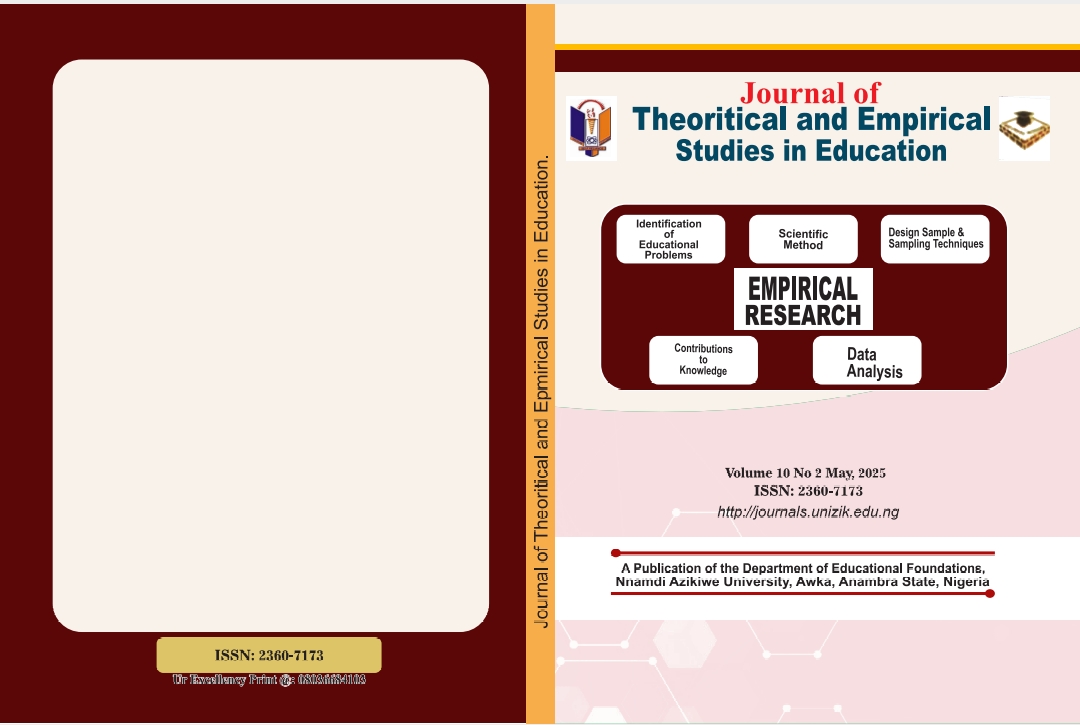SBA ASSESSMENT TOOLS AND PRACTICES OF ECONOMICS TEACHERS: TEACHERS AND STUDENTS PERCEPTION
Keywords:
Assessment, Tools, Practices, School-based assessment.Abstract
The study examined school-based assessment tools and practices of Economics
teachers in secondary schools in Anambra state. The population of the study
comprised all the 258 SS 2 Economics teachers in government-owned secondary
schools in Anambra state, as well as all SS 2 students offering Economics in
government-owned secondary schools in the 2017/2018 academic session. The
research design was descriptive survey. Simple random sampling technique and
proportionate stratified random sampling technique were applied to sample 1,073
students. Three instruments namely, Teachers Usage of Assessment Tool
Checklist and Questionnaire (TUATCQ), Teacher’s Engagement on School
Based Assessment Practices Questionnaire (TESAPQ) and Students’ Perception
of Teachers Engagement on School-Based Assessment Practice Questionnaire
(SPTESAPQ) were used in data collection. Percentages and mean responses of
teachers and students were used to answer the research questions. The findings
show that project, test, homework and classwork were the major school-based
assessment tools used in secondary school Economics in Anambra State. Test
was found to be frequently used weekly; homework and classwork were used
once in two weeks while project was used once in a term. Also, the study showed
that from student’s perception, there are some assessment practices not executed
by the teachers. It was recommended among others that teachers should be given
in-service training on those tools which were not properly used and encouraged
to use them in assessing their students as well as providing regular feedbacks to
the students.




